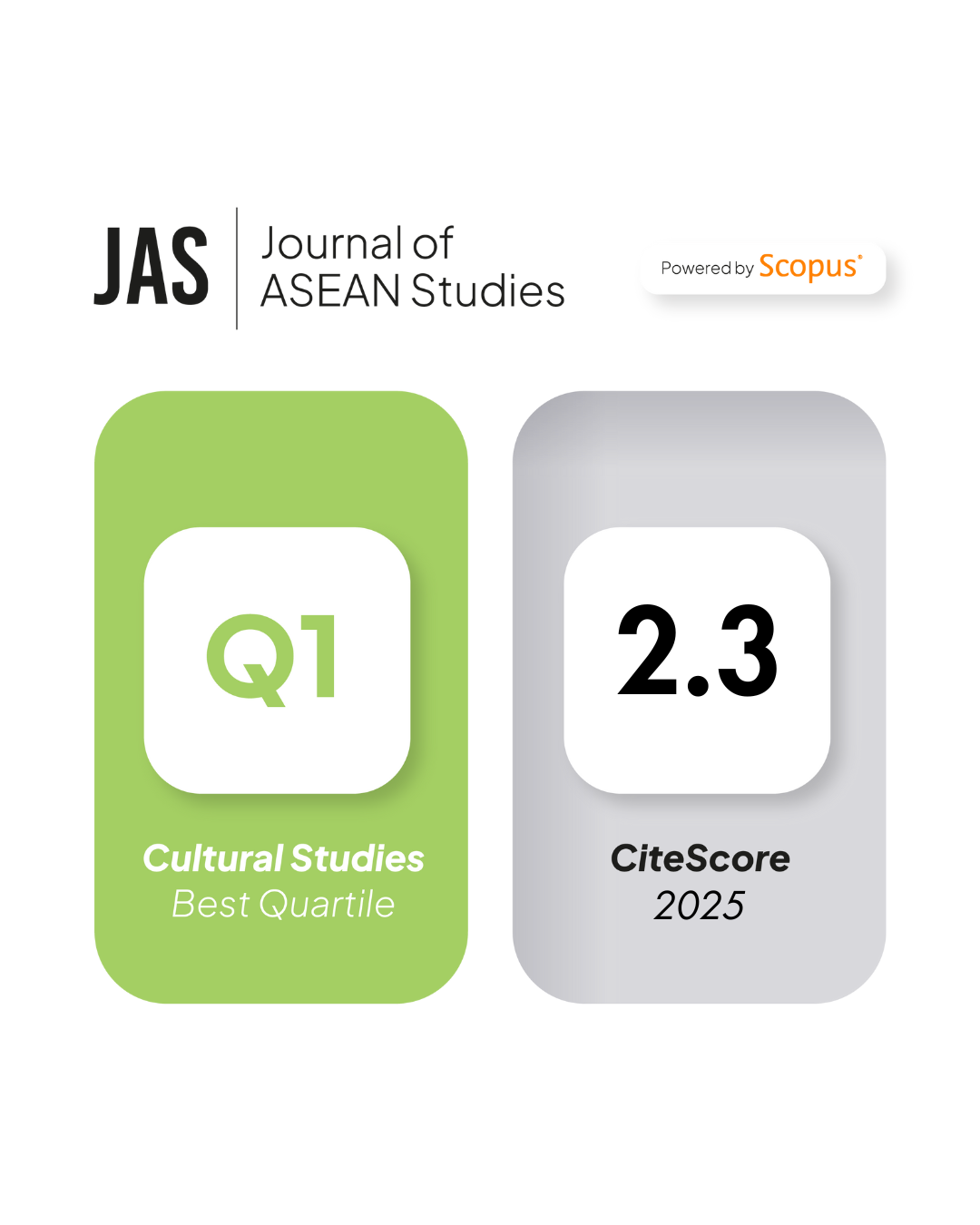The Role of Financial Structure, Business Drive, Business Environment on Decision to Use an External Auditor on Smes: Evidence from Asean Countries
DOI:
https://doi.org/10.21512/jas.v9i2.7070Keywords:
external auditor, SMEs, financial structure, business drive, business environmentAbstract
The research examined the role of financial structure, business drive, and business environment that resulted in external audit service adoption in small and medium-sized enterprises (SMEs) within ASEAN countries. Source of data were from the 2015 and 2016 World Bank Enterprise Survey. The research discovers that external audit service adoption is significantly influenced by financial structure, business motivation, and business environment. Additionally, we take into account a number of control variables, including sales, ownership structure, industry sector, and country of origin. The findings indicate a significant positive correlation between sales, ownership structure (partnership vs. sole proprietorship), and external audit adoption for SMEs. From a country-of-origin perspective, it is concluded that audit adoption is significantly higher in Malaysia and the Philippines than in Vietnam. However, audit adoption in Indonesia is significantly lower than in Vietnam, both in terms of awareness and implementation. Other points of interest can be seen in the interaction regression between countries, which indicates the degree of complexity associated with audit adoption when country of origin is taken into account. One significant policy implication is that SMEs can leverage external auditor services to support their growth and, in turn, the economy of the corresponding country.
References
Anuar, E, Devi, S, & Meng, C. (2012). Audit exemption for Malaysian SMEs: Does ownership matter? Asian Journal of Accounting Perspectives, 5(1), 1-22. https://doi.org/10.22452/AJAP.vol5no1.1
Carey, P., Simnett, R., & Tanewski, G. (2000). Voluntary demand for internal and external auditing by family businesses. A Journal of Practice & Theory, 19(1), 37-51. https://doi.org/10.2308/aud.2000.19.s-1.37
Cleff, T. (2019). Applied Statistics and Multivariate Data Analysis for Business and Economics; A Modern Apporach using SPSS, Stata and Excel (1st Ed.). (2019). Switzerland: Springer.
Collis, J. (2009). Auditing and accounting requirements for SMEs in the UK: A benefit or a burden? 5th Annual Workshop on Accounting in Europe.
Coetzee, F. & Buys, P. (2017). The impact of the independent review on SME access to bank finance: The case of South Africa. Banks and Bank Systems, 12(1), 135-142.
http://dx.doi.org/10.21511/bbs.12(1-1).2017.06
Desender, K., Cestona, A., Crespi, R., & Aguilera, R. (2009). Board Characteristic and Audit Fees: Why Ownership Structure Matters? Working Papers 09-0107. University of Illinois at Urbana Campaign, College of Business.
Elkhatib, S. & Kamel, H. (2013). The perceptions of audit comittees’ role in an emerging market: the case of Egypt. Journal of Economic and Administrative Sciences, 29(2), 85-98. http://dx.doi.org/10.1108/JEAS-09-2013-0028
Hay, D. (2020). The Future of Auditing (1st Ed.). Routledge.
Hien, T., Abbott, M., & Huyen, V. (2016). The impact of the use of independent auditing on credit accessibility: The case of Vietnamese SMEs. VNU Journal of Science: Education Research, 32(5E), 44-54.
Hermas, R. & Tahavainen, A-J. (2002). Ownership and Financial Structure of Biotechnology SMEs: Evidence from Finland. Discussion Paper No. 835. The Research Institute of the Finnish Economy (ETLA), Helsinki.
Irmawan, Y., Hudaib, M., & Hannifa, R. (2013). Exploring the perceptions of auditor independence in Indonesia. Journal of Islamic Accounting and Business Research, 4(2), 173-202. https://doi.org/10.1108/JIABR-09-2012-0061
Kamarudin, N. & Abidin, Z. Z. (2012). Audit exemption among SMEs in Malaysia. Asian Review of Accounting, 20(2), 152-162. https://doi.org/10.1108/13217341211242196
Kesting, P. & Günzel-Jensen, F. (2015). SMEs and new ventures need business model sophistication. Business Horizons, 58(3), 285-293. https://doi.org/10.1016/j.bushor.2015.01.002
Louis, H. (2005). Acquirers’ abnormal returns and the non-Big 4 auditor clientele effect. Journal of Accounting & Economics, 40(1), 75-99. http://dx.doi.org/10.1016/j.jacceco.2005.03.001
Marolt, M., Lenart, G., Maletic, D., Brostnar, M., & Pucihar, A. (2016). Business model innovation: Insights from a multiple case study of Slovenian SMEs. Organizacija, 49(3), 161-171. https://doi.org/10.1515/orga-2016-0015
Olawale, F. & Smit, V. (2010). Business environmental influences on the availability of debt to new SMEs in South Africa. African Journal of Business Management, 4(9), 1790-1799. https://doi.org/10.5897/AJBM.9000122
Palazuelos, E. Crespo, A., & Corte J. (2017). Accounting information quality and trust as determinants of credit granting to SMEs: The role of external audit. Small Business Economics, 51(4), 861-877. https://doi.org/10.1007/s11187-017-9966-3
Peel, M & Bridge, J. (1999). Planning, business objectives and capital budgeting in Japanese, German and domestic SMEs: Some evidence from the UK manufacturing sector. Journal of Small Business and Enterprise Development, 6(4), 350-365. https://doi.org/10.1108/eum0000000006690
Schiffer, M & Weder, B. (2001). Firm Size and the Business Environment: Worldwide Survey Results. IFC Discussion Paper No. 43. Washington, DC: World Bank and the International Finance Corporation.
Senkow, D. W., Rennie, M. D., Rennie, R. D., & Wong, J. W. (2001). The audit retention decision in the face of deregulation: Evidence from large private Canadian corporations. Auditing A Journal of Practice & Theory, 20(2), 101-113. https://doi.org/10.2308/aud.2001.20.2.101
Wallace, W. (2004). The economic role of the audit in free and regulated markets: A look back and a look forward. Research in Accounting Regulation, 17(1), 267-298. http://dx.doi.org/10.1016/S1052-0457(04)17012-4
Van Caneghem, T. & Campenhout, G. (2010). Quantity and quality of information and SME financial structure. Small Business Economics, 39(2), 341-358. https://doi.org/10.1007/s11187-010-9306-3
Vanstraelen, A. & Schelleman, C. (2017). Auditing private companies: What do we know? Accounting and Business Research, 565-584. https://doi.org/10.1080/00014788.2017.1314104
Voulgaris, F., Asteriou, D., & Agiomigianakis, G. (2000). Financial development and financial structures of industrial SMEs: The case Of Greece. European Research Studies, 3(3-4), 95-110.
Downloads
Published
How to Cite
Issue
Section
License
Copyright (c) 2021 Jonathan Jonathan

This work is licensed under a Creative Commons Attribution-NonCommercial 4.0 International License.


























